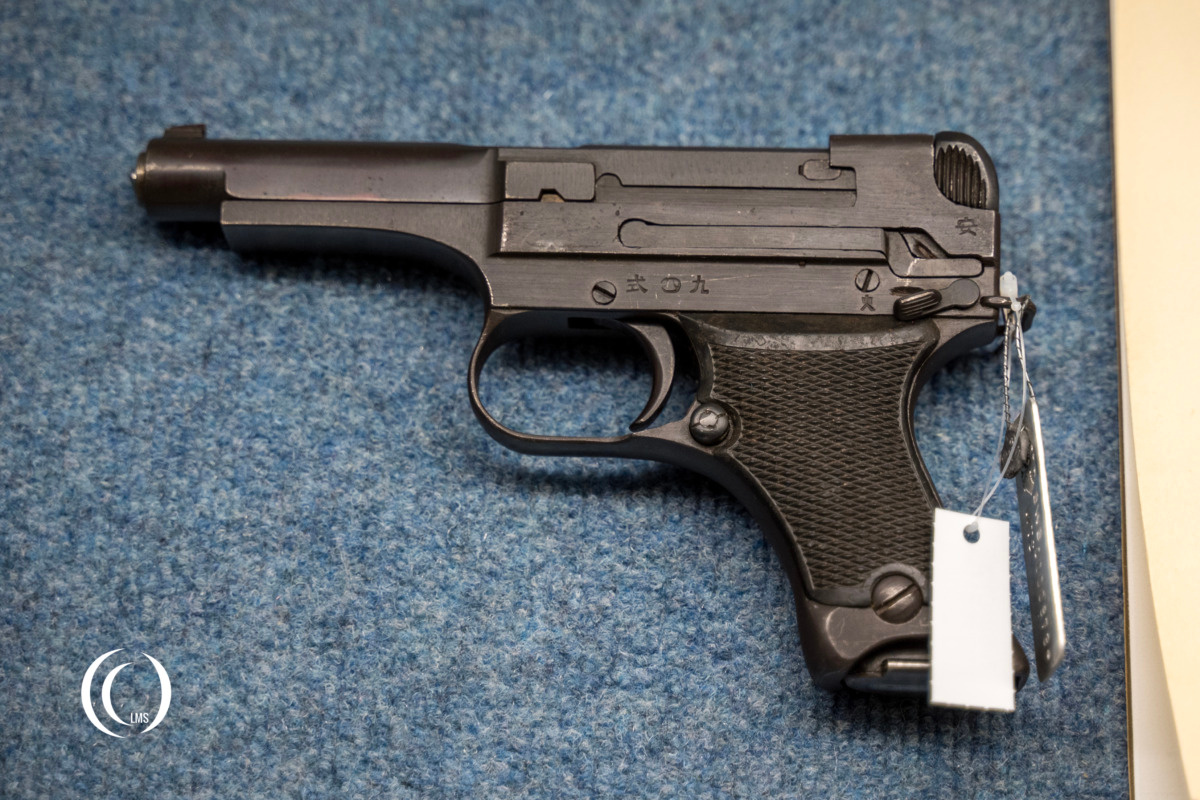
This 8 mm Type 94 Nambu semi automatic pistol was developed by Japanese General and firearms designer Kijirō Nambu for the Imperial Japanese Army starting from 1929. The final prototype was officially adopted by the Imperial Japanese Army in 1934 and taken into production in 1935 by the Nambu Arms Manufacturing Company in Tokyo (founded in 1929). An estimated 72,000 were produced until the end of World War Two in 1945.
Design

The Type 94 pistol was designed as a small and lightweight defence weapon for Japanese armor and aircraft crews according to the specification of the Imperial Japanese Army, with an aim for easy mass production. The firing mechanism was self-propelled by direct gas pressure and had a short pipe return and rigid locking using a cross block lock.
Although the weapon was popular among these crews during the war, the pistol was criticised afterwards because it was known to fire unexpectedly on some occasions and its maintenance was quite a hassle because of its overly complex disassembly process.
Specifications
The Nambu Type 94 pistol (M 1934) displayed on the pictures of this article has the following specifications:
- Manufacturer
Chuo Kogyo, Kokubunji, Tokyo, Japan - Year of manufacture
1940 - Propulsion
Direct gas pressure, short barrel recoil, rigid locking with a cross-block breech - Caliber
8 mm, 6 grooves, right-hand twist - Barrel length
96mm - Initial Velocity (Vo)
305 m/s - Firing pin
Bounce firing pin - Safety
Swing lever - Ammunition feed
From below from bar magazine - Standard ammunition
8x21mm Nambu - Weapon length
187mm - Weapon width
27mm - Weapon height
119mm - Weight
690 g (without magazine)